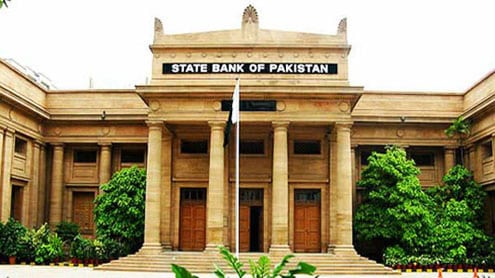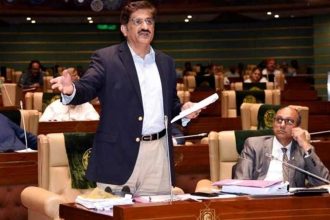The brokerage firm survey indicates the State Bank of Pakistan (SBP) is projected to increase interest rates between 100 to 200 bps on January 23.
74% predict the policy rate to rise 100-200 bps. 37% foresee a 100bps increase, 18% expect 150bps, and 19% expect 200bps, 2% predict an increase of over 200bps, 5% expect a 50bps gain, 18% expect no change, and 2% expect a rate drop.
In November 2022, the SBP raised the policy rate from 100bps to 16%. As a result, CPI inflation has risen to 24.5% since the November 25 monetary policy statement. December urban core inflation (non-food, non-energy) was 14.7%, up from 14.6% in November. December rural core inflation rose to 19.0% from 18.5%.
Given supply-side disruptions and rising food costs in recent weeks, the survey predicted short-term inflation to rise.
“The SBP forecasts average inflation of 21-23% in FY2023, whereas our inflation estimate is around 26%,” it said.
Foreign exchange reserves tumble to $4.3 billion, down $3.1 billion from November 25, just enough for one month of imports. It attributed this to massive debt repayments and slowing foreign inflows. In its recent policy statement, the SBP expressed concerns about declining foreign flows due to political instability, the worsening global crisis, and rising global interest rates.
Foreign exchange reserves, the rupee, and macroeconomic indices are weakening, putting Pakistan’s economy in danger. Pakistan’s economy was cash-strapped after a revenue goal impasse with the IMF. Floods that buried a third of the country and halved growth exacerbated the problem.






